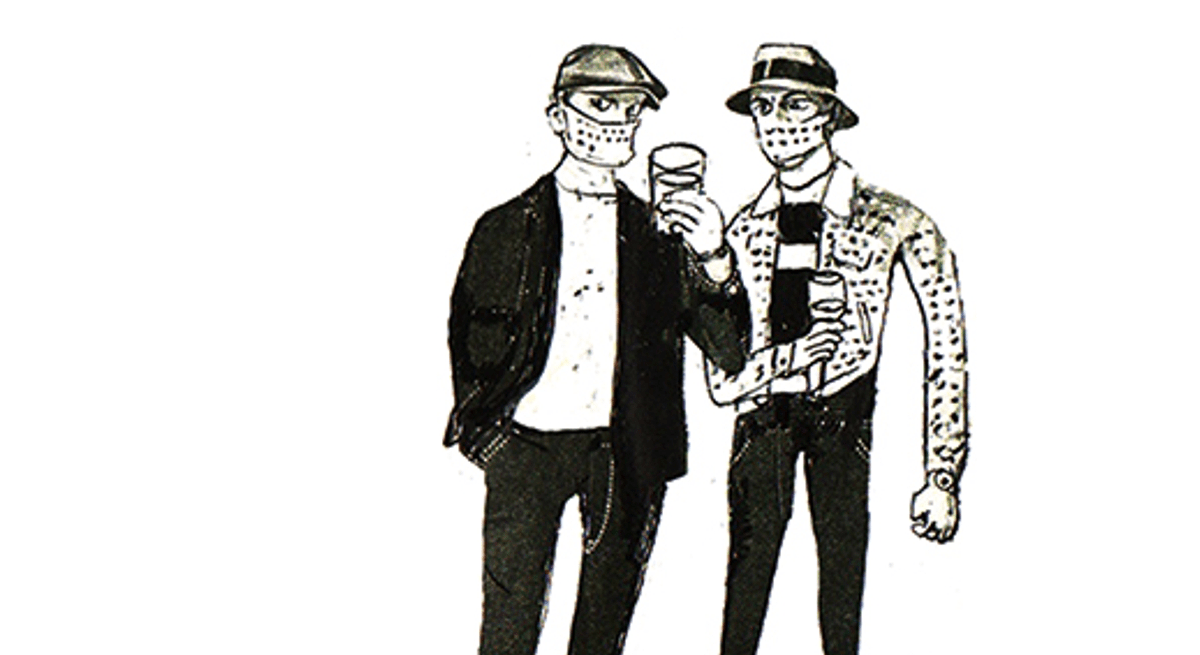Oxford is famous for its pubs. Inspector Morse reveals that they are as much a part of the city’s life as any of its colleges. The insatiable undergraduate demand for cheap beer has meant that pubs like the Turf Tavern and the Eagle and Child have permeated (and intoxicated) the minds of students for centuries. So when the Lamb and Flag closed last week, it was as much a story as any of those bizarre murders John Thaw used to stick his nose into.
No Jag-driving detectives are needed to work out why it has shut. A year of missed terms and lockdowns dramatically cut the pub’s revenue. Owned by neighbouring St John’s College, the pub has stood on its current spot since 1615. C.S. Lewis and J.R.R. Tolkien’s literary group the Inklings frequented it in the 1930s. Thomas Hardy wrote Jude the Obscure huddled at its Georgian bar, and a young Tony Blair was a regular. The Spectator’s own Graham Greene fancied a particularly buxom barmaid. More recently, the pub made a name for itself providing ‘Lamb and Flag scholarships’ to St John’s students unable to afford their courses — surely the most productive use to which Theakston’s Old Peculiar has ever been put.
Stale boozers like The Lamb and Flag face more competition and choosier customers than ever before
Unsurprisingly, many called for the pub to be saved. The local branch of Camra vowed to fight any attempt to change the building’s use. One of Oxford’s MPs Layla Moran called the news ‘tragic and devastating’. I don’t know what our other MP Anneliese Dodds has made of the closure, but as Labour’s shadow chancellor I’m sure she’d agree with Moran that the future for Britain’s pubs looks bleak.
Yet all this lamenting over the Lamb and Flag leaves me cold. That’s not because I’m not interested in pubs. As a brewer’s son and someone sad enough to admit I’ve crawled around every one of Oxford’s inns, I have a vested interest in their future. Nor is it my Thatcherite aversion to any form of government intervention. You don’t have to be Tony Benn to concede that otherwise healthy business should be saved from Covid-inflicted bankruptcy.
But that also does not mean that any pub has an inherent right to stay open. Despite its fame, the inconvenient truth about the Lamb and Flag was that it was not a very good pub. Its bar looks like it hasn’t been painted since Hardy’s time and the beer was tasteless and dull. The place often seemed empty, doing more trade among grumpy old dons than students. That wasn’t because we were all down the local Spoons for our alcopops and pitchers. There were plenty of pubs we’d much rather drink in instead. Coronavirus or not, the Lamb and Flag was sufficiently dull that its closure is not a surprise.
The sad decline of the Lamb and Flag captures that of many pubs across Britain. In recent decades, the number of pubs has sharply declined. In 1982, there were 67,800 pubs in Britain. In 2015, there were 50,800; by June last year, 40,800. These closures have been blamed on the high levels of beer duty and business rates, along with my generation’s unfortunate habit of drinking less than our parents.
But I’m not so sure. Of the 57 pubs in Oxford, only a dozen or so are genuinely nice. Of the rest, I wouldn’t shed any tears if 15 of the worst shut their doors tomorrow. Oxford isn’t alone here: up and down Britain, there are many fine pubs. Yet the reality is that there are also an awful lot of grotty, lager-vending pubs out there that wouldn’t be missed.
Nowadays, we expect more from our pubs. With microbreweries producing and selling craft beer and a craze for gin unmatched since George II’s reign, stale boozers like the Lamb and Flag face more competition and fussier customers than ever before. Hopefully, this last year’s brush with mortality has given Britain’s unimaginative landlords cause to reflect that when Dishi Rishi’s handouts are removed, trading on names, locations and fusty nostalgia alone is likely to be a road to ruin.







Comments